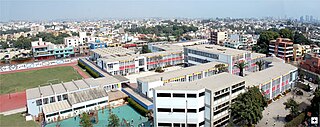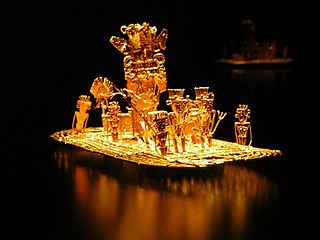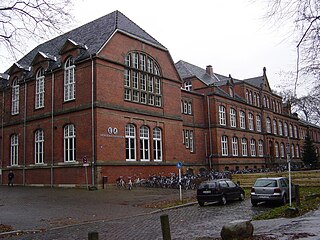
Friedrich Wilhelm Christian Karl Ferdinand von Humboldt was a German philosopher, linguist, government functionary, diplomat, and founder of the Humboldt University of Berlin. In 1949, the university was named after him and his younger brother, Alexander von Humboldt, a naturalist.

Friedrich Wilhelm Heinrich Alexander von Humboldt was a German polymath, geographer, naturalist, explorer, and proponent of Romantic philosophy and science. He was the younger brother of the Prussian minister, philosopher, and linguist Wilhelm von Humboldt (1767–1835). Humboldt's quantitative work on botanical geography laid the foundation for the field of biogeography, while his advocacy of long-term systematic geophysical measurement pioneered modern geomagnetic and meteorological monitoring. Humboldt and Carl Ritter are both regarded as the founders of modern geography as they established it as an independent scientific discipline.

Johann Peter Gustav Lejeune Dirichlet was a German mathematician. In number theory, he proved special cases of Fermat's last theorem and created analytic number theory. In analysis, he advanced the theory of Fourier series and was one of the first to give the modern formal definition of a function. In mathematical physics, he studied potential theory, boundary-value problems, and heat diffusion, and hydrodynamics.

Antisana is a stratovolcano of the northern Andes, in Ecuador. It is the fourth highest volcano in Ecuador, at 5,753 metres (18,875 ft), and is located 50 kilometres (31 mi) SE of the capital city of Quito.

Alexander von Humboldt is a German sailing ship originally built in 1906 by the German shipyard AG Weser at Bremen as the lightship Reserve Sonderburg. She was operated throughout the North and Baltic Seas until being retired in 1986. Subsequently, she was converted into a three masted barque by the German shipyard Motorwerke Bremerhaven and was re-launched in 1988 as Alexander von Humboldt. In 2011 the ship was taken off sail-training and sent to the Caribbean for the charter business, then she was converted to a botel.
The Humboldt Research Award, also known informally as the Humboldt Prize, is an award given by the Alexander von Humboldt Foundation of Germany to internationally renowned scientists and scholars who work outside of Germany in recognition of their lifetime's research achievements. Recipients are "academics whose fundamental discoveries, new theories or insights have had a significant impact on their own discipline and who are expected to continue producing cutting-edge academic achievements in the future". The prize is currently valued at €60,000 with the possibility of further support during the prize winner's life. Up to one hundred such awards are granted each year. Nominations must be submitted by established academics in Germany. As of 2023, over 2,000 awards have been granted.

The Alexander von Humboldt Foundation is a foundation that promotes international academic cooperation between select scientists and scholars from Germany and from abroad. It was established by the government of the Federal Republic of Germany and is funded by the Federal Foreign Office, the Federal Ministry of Education and Research, the Federal Ministry for Economic Cooperation and Development as well as other national and international partners.

Colegio Alemán Alexander von Humboldt, A. C. is a network of German-language primary and secondary schools based in Greater Mexico City.
The Humboldtschule is one of two Gymnasiums, besides the Kaiserin-Friedrich-Gymnasium (KFG), in Bad Homburg vor der Höhe, Hesse, Germany.

The Alexander-von-Humboldt-Gymnasium is a Gymnasium in Konstanz, Baden-Württemberg, Germany.
The Alexander-von-Humboldt-Gymnasium is a Gymnasium in Neuss, North Rhine-Westphalia, Germany.

Deutsche Schule Alexander von Humboldt Lima is a German international school with two campuses in Lima, Peru: one in Miraflores and one in Surco, with a recreational centre in Huampaní. The school serves levels from Kindergarten through Abitur and the Peruvian bachillerato.
Humboldt-Schule may refer to any number of schools named after Alexander von Humboldt:

Muisca numerals were the numeric notation system used by the Muisca, one of the civilizations of the Americas before the Spanish conquest of the Muisca. Just like the Mayas, the Muisca had a vigesimal numerical system, based on multiples of twenty. The Muisca numerals were based on counting with fingers and toes. They had specific numbers from one to ten, yet for the numbers between eleven and nineteen they used "foot one" (11) to "foot nine" (19). The number 20 was the 'perfect' number for the Muisca which is visible in their calendar. To calculate higher numbers than 20 they used multiples of their 'perfect' number; gue-muyhica would be "20 times 4", so 80. To describe "50" they used "20 times 2 plus 10"; gue-bosa asaqui ubchihica, transcribed from guêboʒhas aſaqɣ hubchìhicâ. In their calendar, which was lunisolar, they only counted from one to ten and twenty. Each number had a special meaning, related to their deities and certain animals, especially the abundant toads.

Caroline von Humboldt, née Carolina Friederica von Dacheröden, was a German salonnière and art historian.

The Herder-Gymnasium is a gymnasium in the German city of Minden. It is one of three gymnasium schools in the city. Founded in 1964 as the Städtischen neusprachlichen Gymnasiums für Jungen und Mädchen, it was renamed three years later after the theologian Johann Gottfried Herder.
Herbert Julius von Denffer was a German actuarial mathematician. He was born in Narva, Estonia. During World War II, Denffer worked as a cryptanalyst in Referat F, the Mathematical Referat, as part of the Inspectorate 7/VI, that was the signals intelligence agency of the Wehrmacht, before and during World War II. He would later work for the General der Nachrichtenaufklärung, the successor organization to the In 7/VI, specifically undertaking research in general theory of cryptography.

The Alexander von Humboldt statue is a monumental statue in Chicago, Illinois, United States. Located in Humboldt Park, a major urban park in the Humboldt Park neighborhood, the statue depicts Alexander von Humboldt, a Prussian polymath and the park's namesake. The statue was dedicated in 1892.















